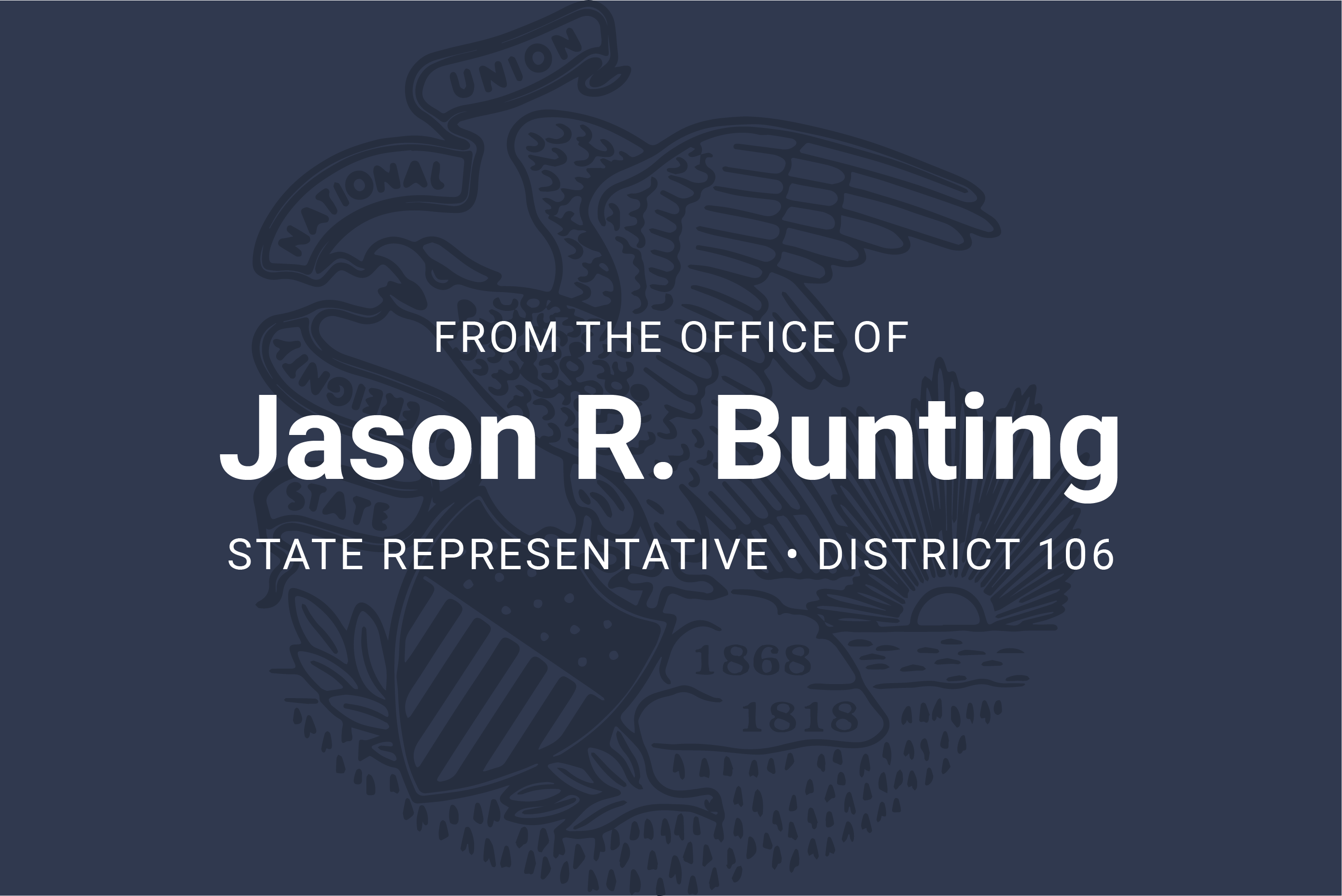In this issue:
- High taxes holding back economic growth
- Storm clouds on the horizon for the state budget
- Meeting with local economic development leaders
- Electric and Telephone Cooperative Youth Day
Illinois’ high taxes are holding back economic growth
A recent report from Moody’s Analytics and the state’s Commission on Government Forecasting and Accountability found that Illinois’ economy is stalled and that high taxes are a big part of the reason why.
Illinois Republicans have been saying for years that the state’s residents are overtaxed and overregulated, and this report just lends more credence to that view. An unfriendly business climate causes businesses to close and drives jobs out of the state. The Governor’s proposal for another $1 billion in taxes on businesses is just another step in the wrong direction.
As we move farther into the spring session, Republicans are offering solutions to reduce the tax burden on Illinoisans and help create jobs and economic activity. One of these bills is House Bill 4866 which would enact a property tax relief plan to save Illinoisans $82 billion over the next 21 years. It will benefit lower-income communities the most, helping us tackle the “worst in the nation” status we received in Economic Racial Equality in a separate study from the consumer finance site WalletHub last year.
HB 4866 is awaiting a hearing in the House Revenue and Finance Committee.
Storm clouds on the horizon for the state budget
It seems that every time we get an update on the status of the state budget it comes with a warning. This month has been no different.
The Commission on Government Forecasting and Accountability presented its final budget forecast for the current fiscal year and its extended forecast for the upcoming fiscal year to a House committee a few days ago. CGFA’s budget forecasts will be a guide for the House and Senate as we put together next year’s state budget, which takes effect on July 1.
The report started off positive enough, with numbers from the Department of Revenue and projections about near-term economic activity suggesting “firm but steady growth” through the first eight months of the fiscal year. But then came the storm clouds: sales tax revenue is flat, growth of income tax revenue is slowing down, and spending in the current state budget is largely tied to one-time revenue – that is, money that we won’t have next year. Matching spending to one-time revenue involves reorganizing the state’s cash flow to hasten certain funds from point A to point B. CGFA warned legislators that the state’s budget is becoming more and more dependent on complex accounting moves like these.
We need to heed these warnings and act responsibly before our budget situation deteriorates any further.
Meeting with local economic development leaders

My staff and I met with Economic Development folks from around the district recently. We had discussions on topics such as current local projects, development, legislation and grants.
Thank you to these individuals for the hard work that they put into their communities to attract new businesses, expand existing enterprises and strengthen the workforce!
Electric and Telephone Cooperative Youth Day

Wednesday was the Illinois Electric and Telephone Cooperative Youth Day in Springfield. The Association of Illinois Electric Cooperatives provides an exciting opportunity for over 300 students to learn how government works and why it’s important for every citizen to be involved.
I met with students who were in town representing Eastern Illini Electric Co-op in Paxton. Thank you to Mike Wilson for coordinating this trip to Springfield!
Our current bill backlog
When a vendor provides the state with goods and services, they submit the bill to the Illinois Comptroller for payment. The Comptroller processes the paperwork and pays the bill when funds are available in the state’s checking account. Currently the total amount of unpaid bills is $1,112,658,792. This figure changes daily. Last year at this time the state had $2.0 billion in bills awaiting payment. This only includes bills submitted to the Comptroller for payment, not unfunded debts like the state’s pension liability, which is well over $100 billion.
Illinois headlines
Illinois leads the way in agriculture
Illinois State names Dr. Tarhule as the University’s 21st President
GEDC Legislative Breakfast set for April 29
Meet the 37 former Illinois players part of the NCAA tournament
Latest census data shows over 80% of Illinois counties losing population
Illinois could switch from the SAT to the ACT next school year
